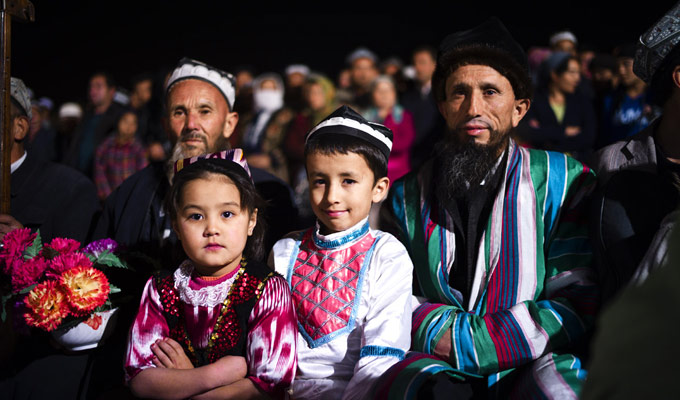The ongoing Kazakhstan unrest must have got the Kazakh government extremely worried. Several protesters and security personnel have been killed in the ensuing violence till now. And Kazakhstan had to seek support from Russia to quell rioting and violence.
Meanwhile, China has come to realise that the ongoing Kazakh unrest is a huge setback for it. It takes the rich oil and gas reserves of Kazakhstan away from China. And now, the CCP is also worried about the Kazakh unrest spilling into China’s Westernmost province of Xinjiang.
Xi hits the panic button
In a major development, Xi Jinping has attempted to reach out to the Kazakh government. He said that Beijing opposes any attempts by foreign forces to stir up trouble in the Central Asian country.
Chinese State-owned paper Global Times has already pointed out the role of Western forces in plotting “colour revolution”.
In his message to Kazakhstan, Xi said, “China resolutely opposes any forces that undermine Kazakhstan’s stability and threaten Kazakhstan’s security, resolutely opposes any forces that undermine the peaceful life of the Kazakhstan people, resolutely opposes external forces deliberately creating turbulence and instigating a ‘colour revolution’ in Kazakhstan.”
Xi also informed Kazakh President Kassym-Jomart Tokayev that China is ready to support Kazakhstan in resolving the crisis.
Xi’s concern and message of support come amidst fears within the CCP that the Kazakh unrest might spill over into Xinjiang.
Beijing worried about the “three evils”
Beijing uses the expression “three evils” to refer to terrorism, separatism, and religious extremism. Such nomenclature is what led to China committing widespread human rights abuses against Uyghur Muslims in Xinjiang and the incarceration of over a million Uyghur Muslims in detention camps.
A Shanghai-based expert has said, “Of course, for Kazakhstan, the ‘three evils’ are mainly terrorism and extremism, and the separatist momentum is not very obvious.”
For the CCP, this translates into a very real and potent threat of religious sympathy for Uyghur brethren from a Muslim-majority Kazakhstan. And authoritarian countries like China don’t take a lot of time in passing off extremism and deviance with Communist ideology as terrorism.
Kazakhstan’s Xinjiang connection
In any case, China’s Kazakhstan fears are not very far-fetched. Xinjiang shares borders with both Kazakhstan and Kyrgyzstan, and Beijing has also incarcerated roughly 22,000 ethnic Kyrgyz and 10,000 ethnic Kazakh peoples in Uyghur concentration camps in Xinjiang. So, there is visible anti-China sentiment in Kazakhstan over human rights abuses in Xinjiang.
Also, Kazakhstan has more than 400,000 Uyghurs who continue to live in exile. Kazakhstan frequently witnesses protests against China as many Kazakhs have relatives in Xinjiang. Such Kazakhs are worried about the fate of their relatives in the Westernmost Chinese province.
For many in Kazakhstan, Xinjiang has become a huge prison in which their relatives are incarcerated by the CCP. This is making Kazakhs extremely bitter in their perception of China.
Kazakhstan has witnessed a wave of protests against the perceived Chinese economic invasion of the country. The wave of protests started from the oil mining town of Zhanaozen in the first week of September 2018 and quickly spread in the cities of Aqtobe, Almaty, Shymkent and the capital city of Nur-Sultan.
Till now, the Kazakh government has managed to quell anti-China protests over human rights abuses in Xinjiang. Even though Kazakhs keep asking their government and China to release information about the fate of their missing relatives in Xinjiang, the Kazakh government generally cracks down on the protesters with a series of harsh measures.
But the ongoing unrest in Kazakhstan that was fuelled by inflating fuel prices is allowing Kazakhs to talk about all their grievances. You know Uyghur sympathizers in Kazakhstan have one good opportunity to raise their issues and they will not let it go. China feels that this will instigate anti-China sentiment and the unrest will spill over into Xinjiang.
Moreover, Xi’s opposition to “external forces” means that he is worried that Russia and other CSTO forces restoring order in Kazakhstan may not take care of China’s interests. Kazakhstan protests are thus emboldening Uyghur Muslims in Xinjiang and this is making Xi extremely nervous.
